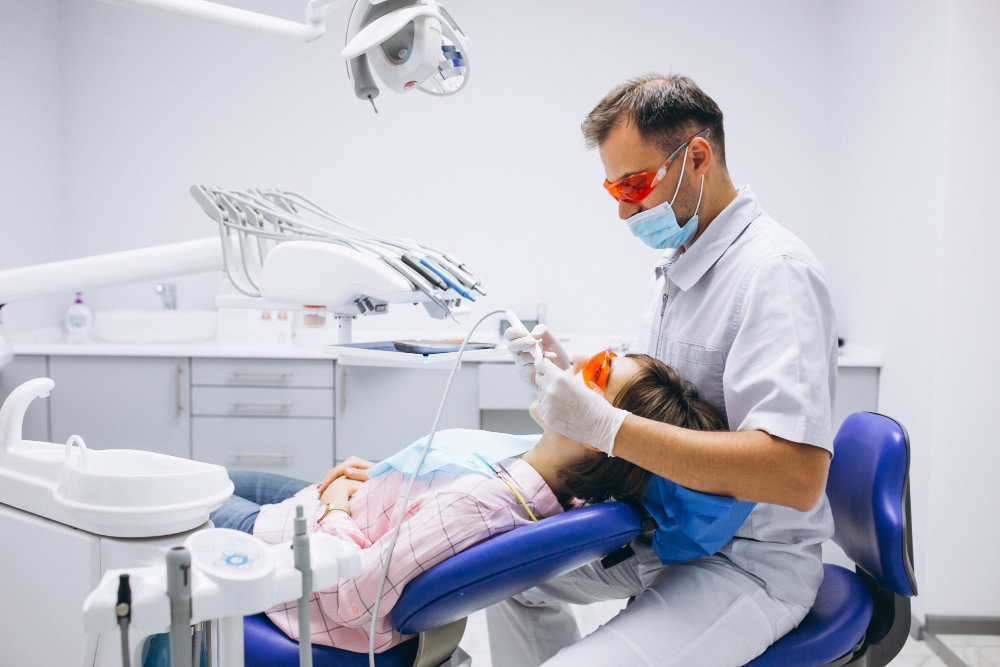Problems in menopause caused by lower levels of estrogen affect the female body in various ways. Besides well-known and treated issues, there are some unexpected symptoms produced by this natural condition such as oral health issues.
For that reason, it is very important to have regular dental treatments at your chosen dentist and try not to miss any of your appointments.
During menopause, you may have had a very strange and unpleasant burning sensation in your mouth. Some of the perimenopausal mouth problems can be dry mouth or you might experience biting and chewing pain. It is a good thing to know that all of these problems can be affected by menopause because of decreasing oestrogen levels in your body.
Hormonal changes definitely affect your oral hygiene no matter what you do. This happens through various stages of your life. We can talk about your puberty, pregnancy, menstruation and menopause - hormones are there and your teeth are being subjected to their changes.
It means that menopause and teeth are an inevitable connection that should be monitored and treated.

Menopause causes various changes in your mouth and we are going to further explain the most common ones.
Menopause is one of the most common causes of hormonal gingivitis. Other symptoms of inflammation of the gums are gum bleeding, and gum swelling, and untreated they may lead to gum recession or even losing teeth.
Salivary glands in your mouth are very dependent on hormones. They need hormones in order to continue supporting consistent saliva production. However, lower levels of oestrogen can decrease this production and lead to dry mouth (or xerostomia) which can further cause an accumulation of germs in your mouth. If left untreated, it may cause tooth decay. On the other hand, dry mouth and menopause are connected in other ways that result in gum infections, the sensitivity of gums, mouth ulcers and sore gums.
Burning mouth syndrome (BMS) is another problem that can affect women during menopause and it is not as rare as you might think. It can be shown without any changes in the oral cavity but it can affect your lips, cheeks and tongue.
And this symptom is very common in the postmenopausal period.
Hormone decrease during menopause can cause some problems with your teeth, too especially when you drink or eat something very cold or very hot, then you may deal with sensitive teeth. It develops when some part of your tooth starts to lose its protective coating. In that way your nerves get vulnerable and you may feel discomfort and pain.
Changing the way food tastes can be affected by menopause, too. Even if you usually like some salty, sour or peppery food, it can be hard to eat it during menopause. Some women say that they have a very bad taste in their mouth during menopause which is a normal result of it. As a matter of fact - if you occasionally feel that food is too bitter, don’t worry - it can be another sign of these symptoms.

You may wonder what to do before experiencing some of the oral problems caused by menopause.
First of all, you should see your dentist. You will get all the necessary information from the expert for oral health. And once you are there, you will get therapy or if you have problems with gums, you will have adequate gum disease treatment. An additional thing you can do is very simple - just do the same things you usually do for your oral health. You should brush your teeth twice a day, try to practice flossing on a regular basis (every day if possible) and rinse your mouth after brushing and cleaning your teeth. On the other hand, you may try to consume more water and less alcohol, and decrease eating sugar products and spicy food. And your problems with the dry mouth will be gone.
Besides keeping your oral hygiene regular and going to the dentist, you may try some hormone therapy as well.
One of the options can be Hormone Replacement Therapy (HRT). It can be very helpful if you need to alleviate or decrease menopausal symptoms. Before starting this therapy, make sure to check all benefits and risks of HRT thoroughly. The other important thing you will need to do is to find out if you are a suitable candidate for it because it can cause some serious side effects. However, a recent study shows that people who receive this therapy have a lower risk of different gum infections.

